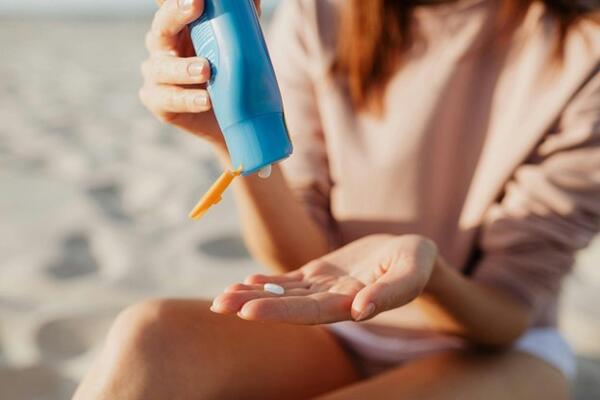
Year-Round Safe Sunscreen Practices
When it comes to sun protection, many people believe it’s only necessary during the sunny summer months. But in reality, the sun’s harmful ultraviolet (UV) rays are present year-round, even on cloudy winter days. Wearing sunscreen daily is an essential part of maintaining healthy, protected skin.
Why Sunscreen is Important Year-Round
UV Rays Are Present Every Day
The sun emits two main types of harmful rays: UVA and UVB. While UVB rays are stronger in the summer and are primarily responsible for sunburn, UVA rays are consistent throughout the year and penetrate deep into the skin. UVA rays can contribute to premature aging and skin damage, and both UVA and UVB exposure can increase the risk of skin cancer. Therefore, year-round protection from both types of rays is essential.
Cloudy Days Don’t Block UV Rays
It’s a common misconception that clouds block harmful rays. In reality, up to 80% of UV rays can penetrate through clouds, exposing skin to potential damage even on overcast days. This makes daily sunscreen application essential, regardless of the weather.
Reflected UV Rays Can Increase Exposure
Snow, water, sand, and even concrete can reflect UV rays, intensifying exposure. For instance, fresh snow reflects up to 80% of UV rays, increasing the potential for sunburn during winter activities. Protecting your skin from these indirect sources of UV exposure is just as important as protection during direct sun exposure.
The Benefits of Broad-Spectrum Sunscreen
When choosing a sunscreen to implement in your skin care routine, selecting one labeled “broad-spectrum” is key. Broad-spectrum sunscreens are specifically formulated to protect against both UVA and UVB rays, ensuring comprehensive protection. Here’s why it matters:
UVA Protection for Anti-Aging
UVA rays penetrate the skin more deeply than UVB rays and are a significant factor in skin aging. By choosing a broad-spectrum sunscreen, you help prevent premature aging, such as fine lines, wrinkles, and dark spots.
UVB Protection to Prevent Sunburn and Skin Cancer
UVB rays affect the outer layers of the skin and are the primary cause of sunburn. They also play a key role in the development of skin cancer. Broad-spectrum sunscreen ensures protection against UVB rays, reducing the risk of sunburn and helping to lower your chances of skin cancer.
SPF Level Matters
While broad-spectrum indicates the type of UV rays blocked, SPF (Sun Protection Factor) determines the level of UVB protection. Dermatologists recommend using a minimum of SPF 30, which blocks around 97% of UVB rays, although SPF 50 provides slightly higher protection. The SPF level does not affect UVA protection, so always ensure it’s paired with the broad-spectrum label.
Tips for Incorporating Sunscreen into Your Routine
1. Make Sunscreen a Daily Habit
Apply sunscreen as the last step in your skincare routine, at least 15-30 minutes before heading outside. Look for lightweight, non-greasy formulas that blend well under makeup, if you wear it.
2. Don’t Forget Often-Missed Areas
Commonly missed areas include the ears, neck, the tops of your feet, and the back of your hands. Lips can also burn, so consider using a lip balm with SPF.
3. Choose the Right Formulation
Sunscreens come in various formulations, such as lotions, sprays, sticks, and powders. Choose one that fits your lifestyle and needs. For sensitive or acne-prone skin, look for mineral-based sunscreens with zinc oxide or titanium dioxide, which are gentler on the skin.
4. Reapply Regularly
Sunscreen is not a one-and-done application. For optimal protection, reapply every two hours or after swimming, sweating, or towel drying. This is especially important if you spend extended time outdoors.
5. Consider Sun-Protective Clothing
In addition to sunscreen, wear UV-protective clothing, hats, and sunglasses to further shield your skin from harmful rays. Clothes with a UPF (Ultraviolet Protection Factor) rating offer added protection and are particularly useful for outdoor activities.
6. Use Sunscreen Indoors if Needed
UVA rays can penetrate through windows, meaning your skin is still exposed even when inside. If you spend a lot of time near windows, like in an office or car, applying sunscreen to exposed areas is a smart move.
Choosing the Right Sunscreen for Year-Round Use
Choosing the right sunscreen for year-round use can be a daunting task given the multitude of options available on the market.
To ensure adequate daily protection, dermatologists recommend selecting a sunscreen with an SPF of 30 or higher. For those engaging in outdoor activities, a water-resistant formula is ideal, as it remains effective even while sweating or swimming. It's also important to opt for a broad-spectrum sunscreen to protect against both UVA and UVB rays. Additionally, when deciding between mineral and chemical sunscreens, consider that mineral options, which contain zinc oxide or titanium dioxide, physically block rays by sitting on top of the skin, while chemical sunscreens absorb into the skin to neutralize the rays.
Ultimately, the choice will depend on personal preference and skin type.
Final Thoughts
Adopting safe sunscreen practices year-round is one of the best things you can do for your skin’s health. By protecting yourself consistently, you can reduce the risk of skin cancer, slow down premature aging, and keep your skin looking its best. Remember, sun damage is cumulative, so every day you skip sunscreen adds up over time. Making sun protection a daily habit will benefit your skin for years to come.